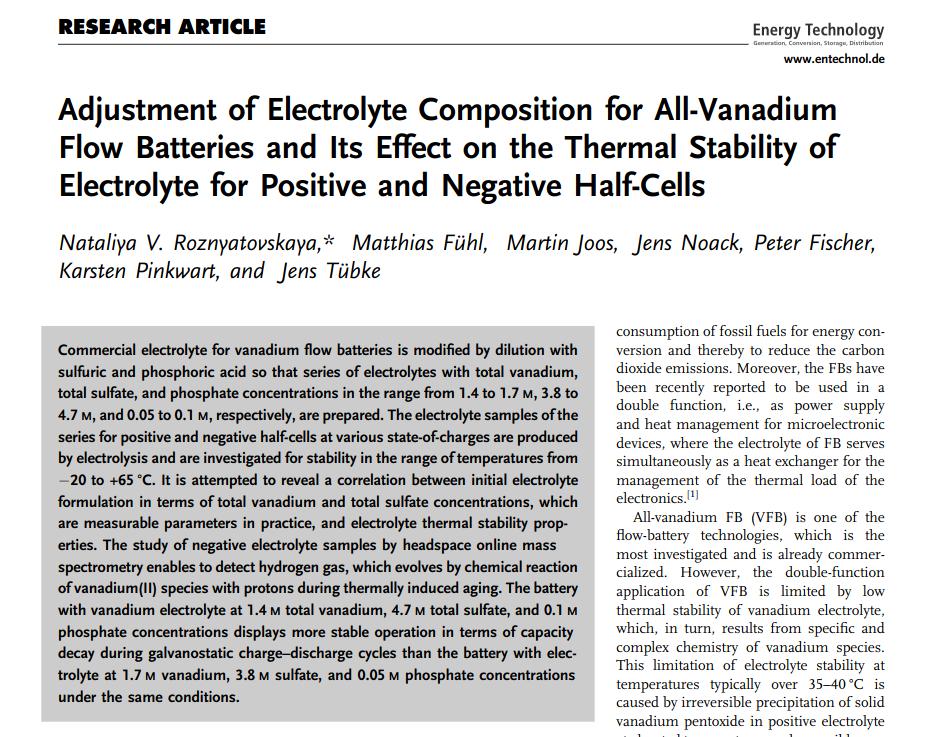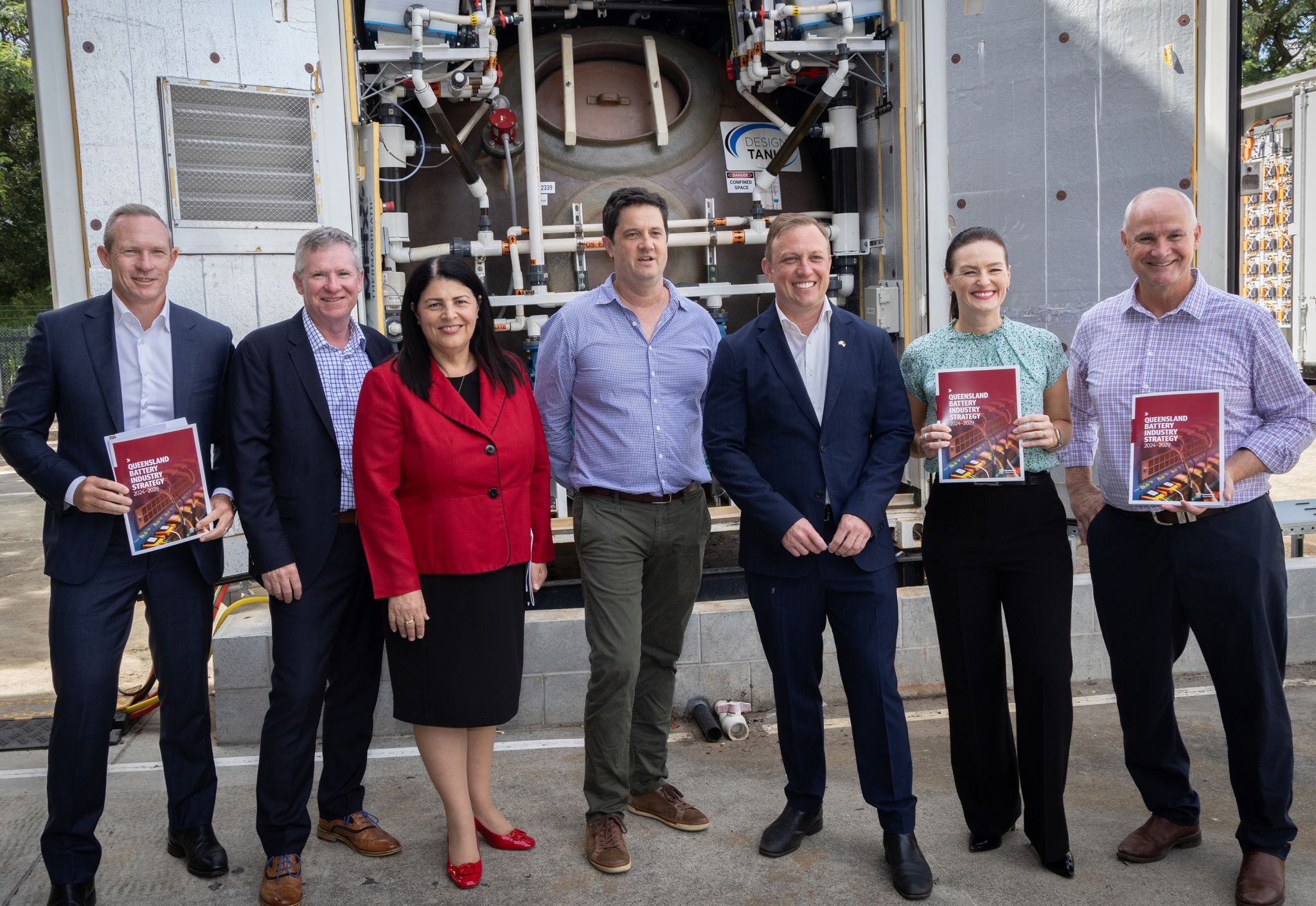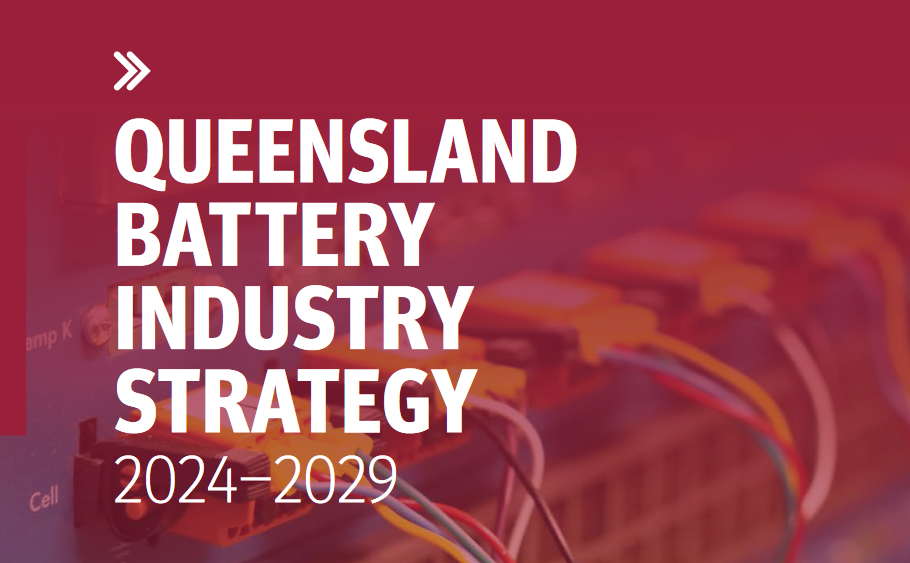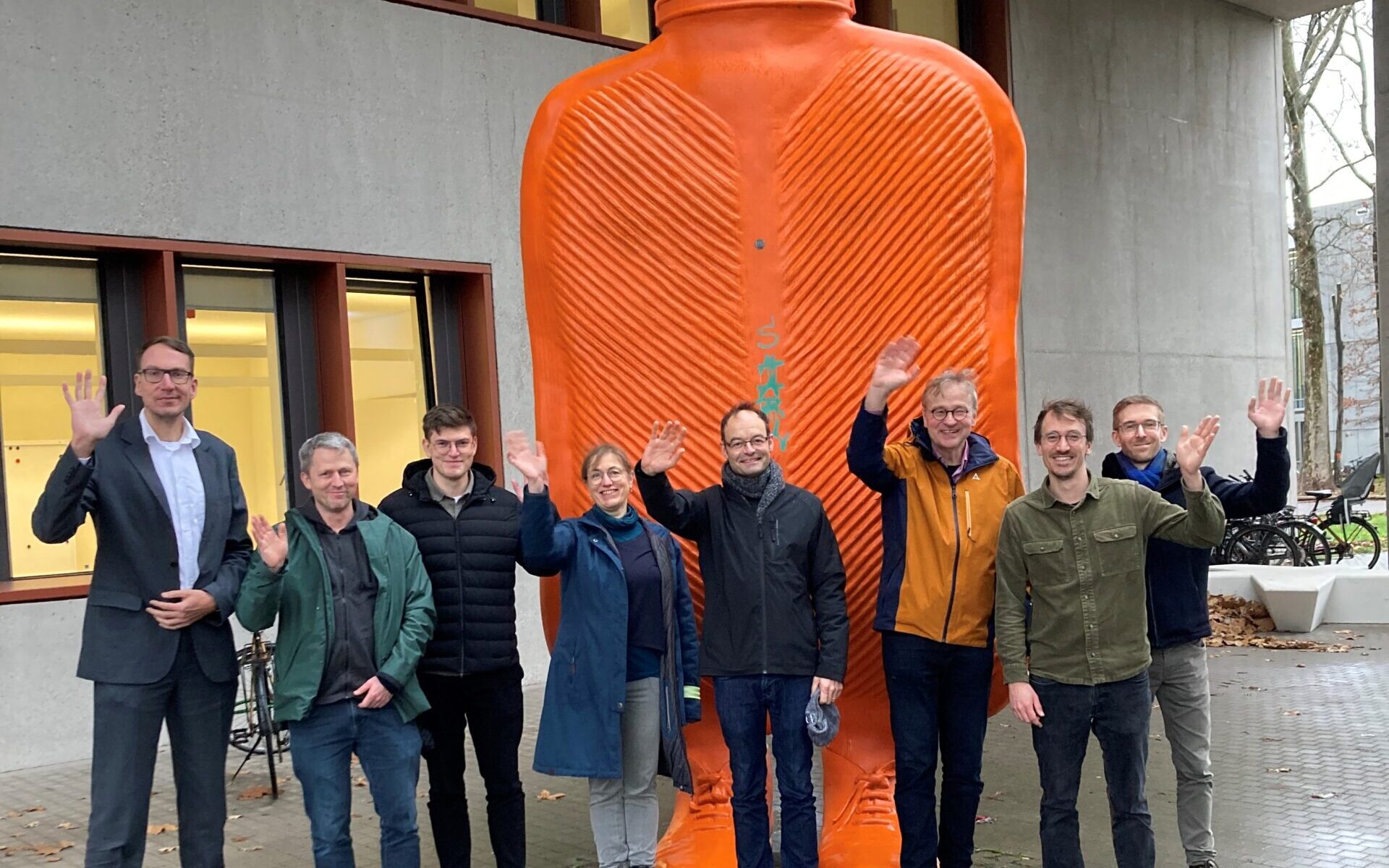https://onlinelibrary.wiley.com/doi/full/10.1002/ente.202300739
Queensland Government visiting ESIAP
Energy Storage Industries Asia Pacific’s Stuart Parry was delighted to be one of the hosts for Queensland Premier Steven Miles, Grace Grace MP, Mick de Brenni, Leanne Linard MP and Glenn Butcher for the launch of the five-year Queensland Battery Industry Strategy. Queensland is at the forefront of battery technology development and this strategy will reinforce the state’s reputation as a leader in the renewable energy economy. ESI’s grid-scale batteries are comparable to mini pumped-hydro systems that can be delivered in strategic locations around the state to supply affordable and reliable renewable energy to homes and businesses overnight.
Queensland Premier Minister speaks about Vanadium Redox Flow Batteries
Queensland Premier Minister Steven Miles speaks about establishing an Industry for the production of Vanadium Redox Flow Batteries in Queensland / Australia.
Queensland Battery Industry Strategy
Queensland Government announces a $570 million strategy to supercharge a new industry for Queensland.
Flow batteries are a core technology of this plan.
https://www.statedevelopment.qld.gov.au/industry/powering-queenslands-battery-industry
SONAR final meeting in Karlsruhe
The final meeting of the EU project SONAR took place on 13.12.23. As a reminder: In SONAR, seven different research institutions worked on the development of a computational high-throughput screening process for novel organic active materials for redox flow batteries. The demonstrator is available at https://redoxfox.scai.fraunhofer.de. We will provide a final version of the project website at https://www.sonar-redox.eu. In other words, we will now reorganize it somewhat and have already started to do so, so that information and results from the individual SONAR participants will be available.
Finally, and very importantly, the Fraunhofer SCAI is now offering a service for all interested parties as a point of contact for the developed screening process. In principle, the screening is not limited to redox flow batteries, but can ultimately be adapted for all organic materials with specific properties, especially for other battery types.
It has been a special honor for me to coordinate this very interesting project over the last four years with these extremely professional and outstanding partners.




